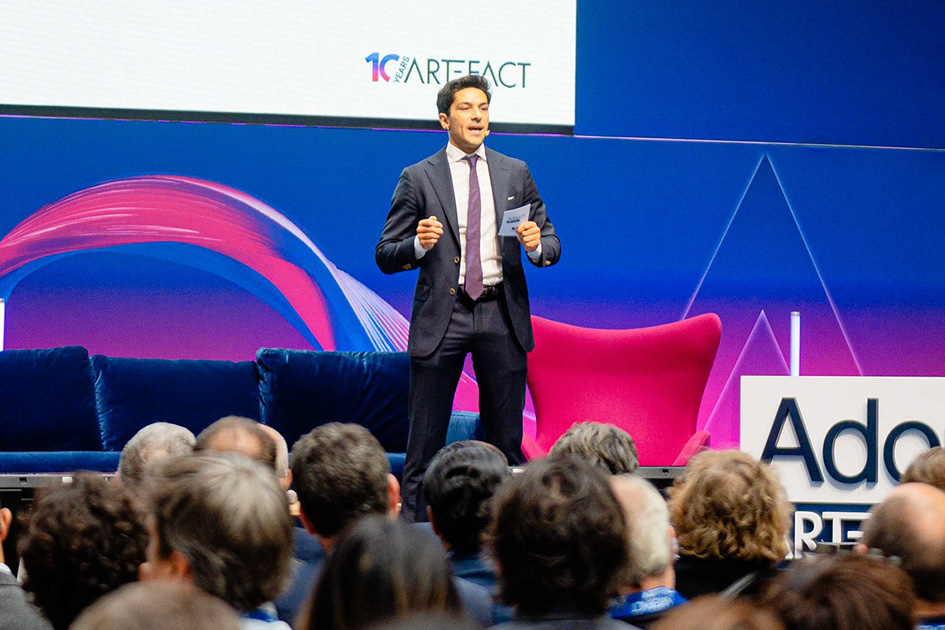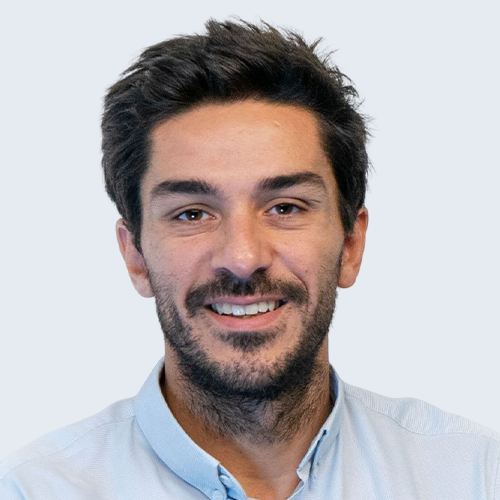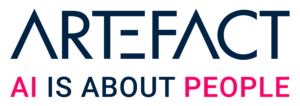On June 5th, Vincent Luciani, Cofounder and CEO of Artefact, delivered an insightful speech at the Adopt AI Summit organized by Artefact at Station F in Paris.
He shared personal anecdotes and professional observations, illustrating the transformative impact of AI on both individual aspirations and business processes. He emphasized the rapid advancements in AI technology and the significant potential it holds for reshaping industries and improving efficiency in the coming years.
When I was 12, my dream was to become a chess master, but every day I lost to my computer, and every day my father told me to keep trying because humans always beat machines at chess. But in the very same year, I witnessed the victory of Deep Blue over Garry Kasparov, three to two, and that crushed my last hopes.
Since then, I’ve seen AI push human boundaries many other times over the past 10 years:
New frontiers are set every month and this trend even seems to be accelerating, as past models contribute to future research.
When I created Artefact 10 years ago with Guillaume and Philippe, I often had to explain the definition of AI. Well, that’s not the case anymore.
AI has spread globally faster than any other technology before and is today being experimented with in two out of three companies all over the world. What we see is amazing:
This is only the beginning. Even with massive enterprise testing, GenAI is still in its infancy and the best is yet to come. Today, GenAI is mostly a bottom-up approach, used individually as a productivity factor by adding technology to existing tasks. We believe the next phase is to collectively reshape how work is done and redefine processes from end to end.
But 18 months after ChatGPT launched, we now know that industrialization at scale is not easy. Only one in 10 companies reports successful implementation.
Despite the apparent ease suggested by impressive public videos, there is enormous complexity. AI, and especially foundational AI, is only a toolbox and needs a lot of work.
Many questions remain partially answered defining the future of work, but also creating conditions of trust, protecting Intellectual property, and preserving our environment. Let’s walk the talk. Experiments are the best way to learn.
We have everything we need to face these challenges and I am particularly proud today to be French and European because I feel that something is happening:
No one knows what AI will be in three months, six months, a year. What I do know is that everything is about adoption. A technology is worth zero if it isn’t used.
Today, we are at a pivotal point: companies that embark on this journey will move at the speed of light and create competitive advantage forever.
Let’s be optimistic about building true complementarity between humans and machines. Chess has not disappeared, the level has only increased. Today, the best competitions in the world are those where humans and robots work together.
I would like to thank all the CEOs, Exco members, technology companies, start-ups, teaching and research teams who came today.
As we celebrate our 10th anniversary, Artefact is already a big success: with 1500 people in 25 countries, we are one of the biggest pure players in data and AI in Europe. We owe this success to our amazing team, one of the most passionate in the world on these topics.
Finally, I would like to pay a big tribute to our clients, many of whom are here today, and without whom we would not have come this far. I am more than excited to see how we will meet these challenges together in the next decade.
Thank you – and let’s Adopt AI together!
Visit adoptai.artefact.com

 BLOG
BLOG




